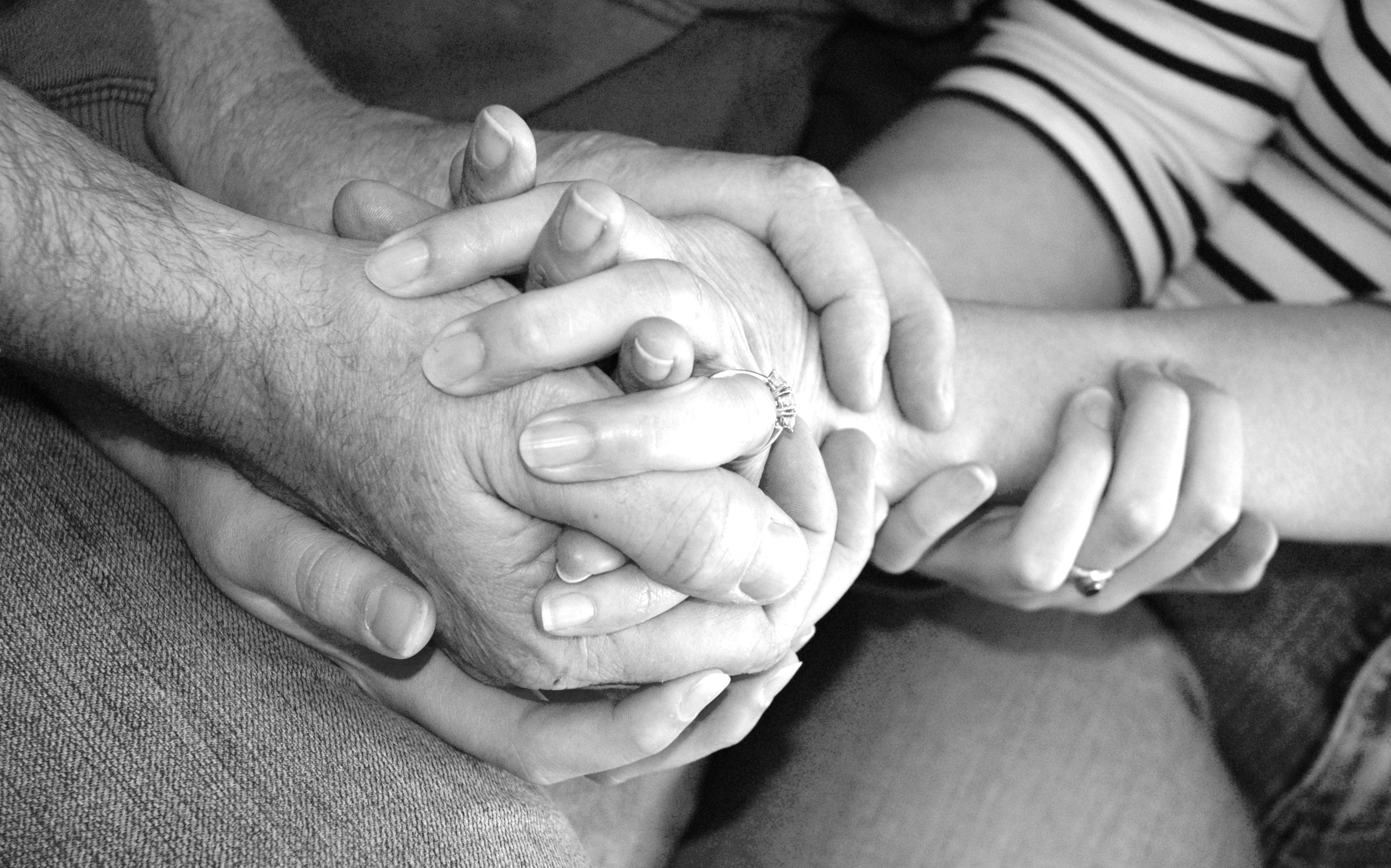Grief and loss are profound human experiences that touch everyone at some point in their lives. Understanding the importance of grieving is essential, as it is the natural response we have to losing someone we love. The grief process can be disorienting, and learning how to cope with loss is a journey that often feels overwhelming. However, having support during grief can provide comfort and guidance, helping individuals navigate the emotional turmoil that follows such a significant change. By acknowledging our grief and actively working through it, we can begin to heal and find peace amidst the pain.
The emotional turmoil that arises from bereavement is a universal theme, encapsulated in the struggles one faces when losing a loved one. This state of mourning brings a tidal wave of feelings, highlighting the vital role of allowing oneself to process such immense sorrow. Engaging in the healing journey of sadness isn’t always straightforward; it requires facing the harsh reality of absence and embracing the complexities of personal emotions. Finding mechanisms for support during this intense period can significantly aid individuals in understanding their pain and restoring balance to their lives. Throughout this experience, the act of remembrance and honoring the lost connection becomes pivotal in finding solace.
Understanding the Grief Process: Navigating the Stages of Loss
The grief process is often perceived as a linear journey, yet in reality, it resembles a pendulum swing between emotion and reflection. Upon the loss of a loved one, many experience a rush of feelings that can include shock, anger, and profound sadness. These emotions are not simply phases to push through; rather, they intertwine, allowing individuals to process their loss in unique ways. Understanding these stages, whether they are labeled as denial, anger, bargaining, depression, or acceptance, can help individuals navigate their grief with more self-compassion.
It is crucial to recognize that grief does not adhere to a strict timetable. For some, the immediate shock may dissipate quickly, revealing deeper feelings of sorrow and longing. Others may find themselves caught in an endless loop of memories and what-ifs. This is where support during grief becomes essential. Seeking out counseling or joining a support group can provide a pathway through the chaos, offering insights from others who share similar experiences and emotions.
Dealing with Grief: How to Cope with Loss Effectively
Coping with loss can feel overwhelming, especially when faced with the heaviness of grief. While it is important to allow oneself to feel all emotions, taking active steps towards coping can create a semblance of control in times of chaos. Establishing daily routines can provide structure and distract from the anguish, while engaging in hobbies, physical activities, or spiritual practices may foster healing. Importantly, allowing oneself time to grieve, whether through solitude or shared experiences, is critical in working through feelings associated with loss.
Moreover, acknowledging that grief manifests differently for each individual is vital. One may find solace in writing about their feelings or expressing them through art, while another may prefer talking about their loved one with family or friends. The act of remembering, sharing stories, or even creating a memorial can serve as a tool for empowerment amidst sorrow and foster connections with others grieving similar losses.
The Importance of Grieving: Acknowledging the Pain of Loss
Grieving is not just a natural response to loss; it is a necessary process that validates one’s love and the impact of that relationship. By allowing oneself to experience the fullness of grief, individuals pay homage to their loved ones. Ignoring or suppressing grief can lead to unresolved feelings that may appear long after the initial loss, affecting one’s mental and emotional well-being.
Moreover, the importance of grieving lies in its potential to transform. Embracing grief allows for an authentic expression of love that honors what was lost. It serves as a reminder that while the physical presence may be gone, the relationship and the memories endure, nurturing continued connections in new forms.
Finding Support During Grief: Building a Network of Care
Support during grief is crucial as it fosters resilience and healing. When faced with loss, seeking companionship from those who understand can create an environment where grief is normalized. Whether it’s friends, family, or organized support groups, sharing experiences and feelings is a vital part of coping. Knowing that one is not alone can alleviate some feelings of isolation that often accompany grief.
Additionally, professional support, such as grief counseling, can provide strategies and tools to manage overwhelming emotions effectively. Therapists often utilize various approaches, including cognitive behavioral therapy or narrative therapy, to help individuals process their grief. Building a network of care can create a safety net that individuals can lean on, ensuring they feel supported as they navigate their personal grief journeys.
Embracing Memories: Cherishing Time with the Departed
In the wake of loss, cherishing memories becomes a vital therapeutic tool. Embracing recollections offers a positive way to honor those who have passed away. Creating a scrapbook, writing letters to the deceased, or celebrating their birthday annually can transform the narrative of grief into one that recognizes love and happiness rather than just sorrow.
Furthermore, storytelling can be a unifying exercise among family and friends, allowing everyone to share cherished moments and anecdotes that keep the spirit of the departed alive. These activities reaffirm that grief is intertwined with love; through memories, positive feelings can coexist with loss.
Exploring Nature: Finding Solace in the Outdoors
Nature has a profound capability to provide solace during times of grief. Stepping outside can serve as a grounding experience, reminding individuals of the natural cycles of life and death. Activities like hiking, gardening, or simply sitting by a waterbody can evoke feelings of tranquility and connection to something larger than oneself.
Engaging with nature can also prompt introspection, offering the clarity needed to process complex emotions associated with grief. As one immerses themselves in the beauty and calmness of the outdoors, they may find it an opportunity to reflect on their loved one’s life and legacy, fostering a sense of gratitude amidst their sorrow.
The Role of Creativity: Art as a Medium for Grief Expression
Creativity often serves as a powerful medium for expressing the complexities of grief. Through art, writing, or music, individuals have the opportunity to channel their pain, transforming it into something visible and meaningful. Creative expression allows for the exploration of emotions that may be difficult to articulate otherwise.
Participating in artistic endeavors, whether painting, journaling, or composing music dedicated to a loved one, can facilitate healing by providing an outlet for grief. Many find that these creative projects not only serve as a tribute but also bring therapeutic relief, enabling them to navigate their emotions through a constructive lens.
The Journey of Healing: Moving Forward After Loss
The journey of healing after loss is not a destination but a continual process of growth and adaptation. It involves learning how to carry grief forward while integrating the memories of the departed. This evolution acknowledges the pain while also giving space for new experiences and joys in life.
Moving forward does not imply forgetting; rather, it’s about finding a new normal. Those grieving often discover that their relationship with their loved one can evolve, allowing them to share their love in ways that honor their memory. Embracing this journey requires patience, self-compassion, and a willingness to explore what life looks like post-loss.
Celebrating Life: Honoring Loved Ones Through Rituals
Rituals play a significant role in the grieving process, providing structure and a means to honor the deceased. Celebrating anniversaries, creating memorial traditions, or establishing family gatherings in remembrance can forge connections with the past while fostering a sense of community amongst those left behind.
Such practices create a space for reflection and shared grief, reminding participants of the importance of their loved ones in their lives. Celebrating life doesn’t mean ignoring pain; rather, it acknowledges that love persists despite loss, allowing individuals to explore their grief within a supportive framework.
Frequently Asked Questions
What are effective ways of dealing with grief after a loss?
Dealing with grief can be a personal journey, but some effective ways include seeking support from friends, family, or support groups, allowing yourself to feel and express your emotions, and engaging in activities that honor your loved one’s memory. Establishing a routine, practicing self-care, and considering professional counseling can also help you cope with loss in a healthy way.
Why is the grief process important in healing after losing a loved one?
The grief process is essential as it allows individuals to navigate the complex emotions that follow a loss. It’s a natural response to love and attachment, and engaging in the process helps in understanding and accepting the reality of the loss, ultimately leading to healing. Recognizing and processing grief fosters resilience and can help individuals find a way to cherish their memories while moving forward.
How can I cope with loss in a healthy way?
Coping with loss in a healthy way involves acknowledging your feelings, seeking support from others, and finding personal outlets such as writing, art, or physical activity. Creating rituals or memorials can also provide needed closure. It’s important to allow yourself time to grieve and not rush the healing process, as it takes time and patience to adjust to life after loss.
What support is available during grief and loss?
Support during grief and loss can come from various sources including close friends and family, support groups for those who have experienced similar losses, and professional counselors or therapists specializing in grief support. Online resources and hotlines can also provide immediate assistance and connect individuals with local services.
What are the stages of the grief process?
The grief process is often described in stages, which typically include denial, anger, bargaining, depression, and acceptance. It’s important to note that these stages are not linear; individuals may experience them in different orders or revisit stages as they work through their grief. Understanding these stages can help validate experiences and normalize the emotions associated with mourning.
| Key Points | Details |
|---|---|
| Sudden Loss | Geraldine Brooks recounts the sudden death of her husband Tony Horwitz after a collapse while he was out promoting his book. |
| Grief Experience | Brooks expresses the disorienting and profound nature of her grief, emphasizing the shock of losing someone so vital. |
| Cultural Context | Brooks critiques the societal reluctance to openly grieve and the pressure to maintain normalcy after a loss. |
| Personal Journey | She reflects on her own need for space to fully experience grief, moving away from societal expectations. |
| Memorial Days | Brooks seeks to honor her husband’s memory and allow herself to grieve fully, calling it her own memorial days. |
Summary
Grief and loss can profoundly alter our lives, as seen in Geraldine Brooks’ poignant narrative following the sudden passing of her husband, Tony Horwitz. In navigating her sorrow, Brooks highlights the chaotic nature of grief and the societal pressure to conceal our emotions. She emphasizes the importance of allowing oneself to fully experience pain and remember loved ones in the wake of loss. Ultimately, her journey towards healing advocates for the necessity of creating personal memorial spaces to honor those we have lost.



